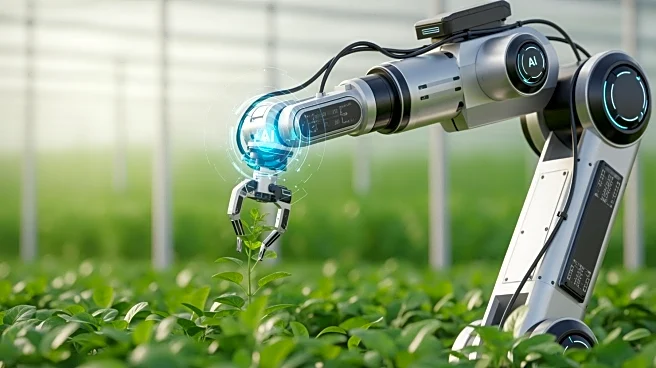What's Happening?
Carbon Robotics, a Seattle-based company specializing in agricultural robotics, has successfully raised an additional $20 million in funding. This new capital injection brings the company's total funding to $177
million. Carbon Robotics is known for its innovative AI-powered automation systems designed to improve farming efficiency. The company's flagship product, the LaserWeeder, utilizes lasers guided by proprietary AI to eliminate up to 99% of weeds without the need for chemical herbicides. Additionally, the company offers the Carbon ATK (Autonomous Tractor Kit), which transforms existing tractors into autonomous machines. The latest funding will be used to accelerate production, expand global sales, and develop new products based on their AI platform.
Why It's Important?
The investment in Carbon Robotics highlights the growing interest and potential in AI-driven agricultural technology. By reducing the reliance on chemical herbicides, the company's LaserWeeder not only promotes sustainable farming practices but also helps protect soil health. The development of autonomous farming equipment like the Carbon ATK can significantly reduce labor costs and increase efficiency for farmers. As the agricultural sector faces challenges such as labor shortages and the need for sustainable practices, innovations like those from Carbon Robotics could play a crucial role in transforming the industry. The funding also underscores investor confidence in the company's ability to expand its market presence and continue innovating.
What's Next?
Carbon Robotics plans to use the new funding to accelerate the production of its existing products and expand its global sales efforts. The company is also developing a new AI robot, expected to be unveiled in about nine months, which will perform additional agricultural tasks beyond weeding. This new machine will leverage the same AI system currently used in the company's equipment, offering flexibility and enhanced capabilities. As the company continues to innovate, it may attract further investment and partnerships, potentially leading to broader adoption of its technology in the agricultural sector.








